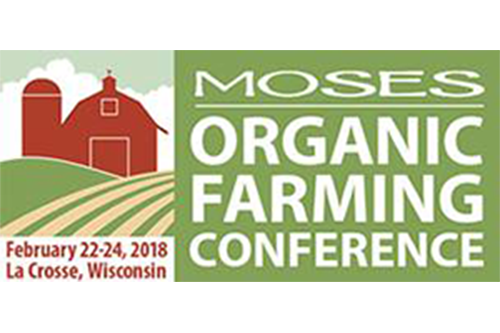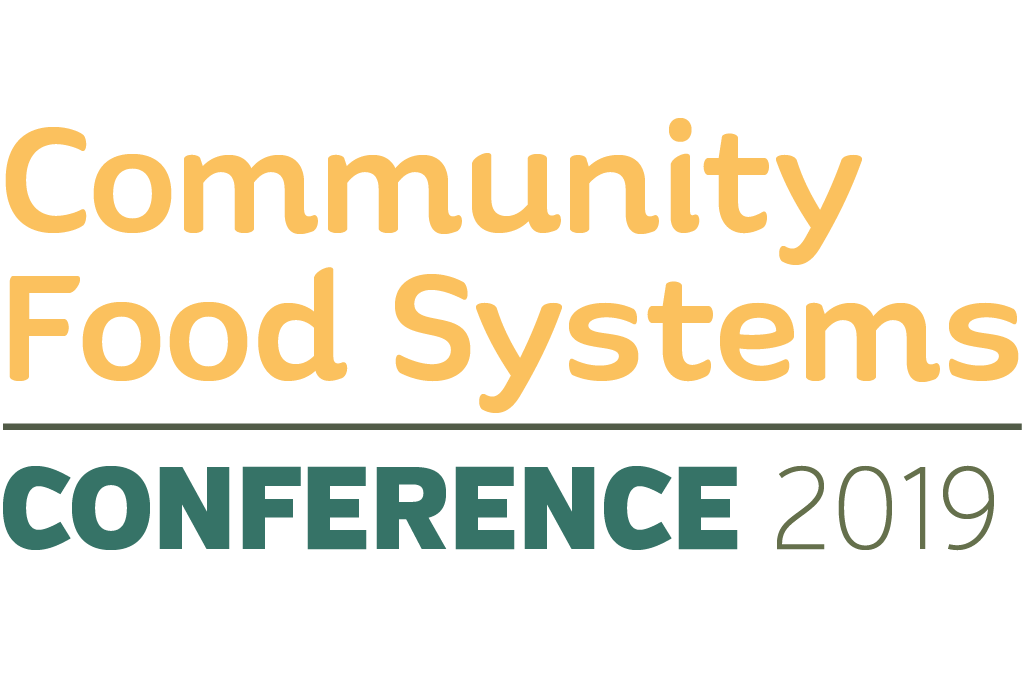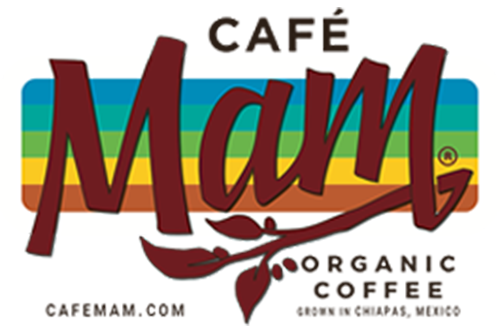It’s Wednesday, one week before Thanksgiving in 2015. Hidden in the fog of Oregon’s Beazell Memorial Forest is a barn. Nearby, incense cedar and Douglas fir trees sway and whisper. The path to the entrance feels like Hansel and Gretel’s walk in the woods, but instead of encountering saccharine peril, Oregon Tilth staff gather for the organization’s annual retreat.
Inside, it’s frigid. Like a working barn, the building has little insulation. Ceiling fans circulate slowly, giving the impression that warmth will arrive on a leisurely wind. It never does. For the next nine hours, staff sit in a large circle to reflect on the year and look to the future.
There are no trust fall exercises, although we do make silly hats. Mine, a pile of glitter glue and fluorescent pipe cleaners, is more of a psychedelic porcupine helmet than an expression of the real me. We participate in other exercises. We listen to departmental updates. One colleague presents in a rainbow unicorn costume to keep attention sharp. It works. The afternoon workshop, “Connecting to the Mission,” is a direct, fiery affair. It features debate and raw honesty that, like a trust fall, requires a willingness to take risks.
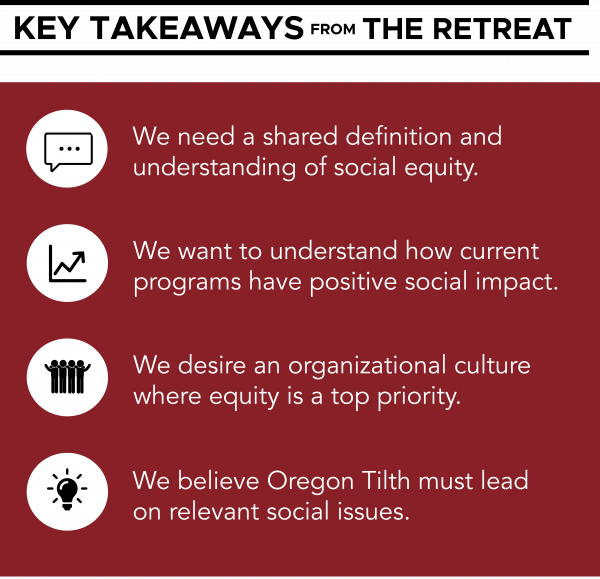
Most of the roughly 14.4 million people who work for nonprofits do so because of the organization’s mission. A Brookings Institution survey found that 72 percent of respondents believed that co-workers were greatly concerned about achieving their nonprofit’s mission. In addition, a recent Oregon Tilth staff survey asked: Does the mission make you feel your job is important? Every person answered positively.
For us, mission fulfillment—much of which involves an unsexy daily grind where we balance a million spinning plates on fragile sticks—must somehow consistently engage the heart. And, as ambassadors of the organization, we must use our mission as our de facto elevator pitch to stakeholders and newcomers alike.
The core of Oregon Tilth’s mission is to “support and promote biologically sound and socially equitable agriculture.” Some staff at the retreat envisioned the mission statement as a table for two in a café where the social equity chair was vacant, the menu unopened, and the glass of water untouched. For others, our mission was a waterfall where our work’s societal benefits are blended, mixed, and at times hidden in the roaring cascade of everything else we do. Metaphors aside, it was clear there was little agreement about how well we meet the equity part of our mission. At the conversation’s center was the question: “How should and could Oregon Tilth support and promote social equity in our work?”
Easy-peasy, right? Dig deeply into a 40-year old mission statement to elevate the organization’s commitment to addressing major (repeat, major) social issues. Cue the nervous, sweat-filled armpits and second-guessing.
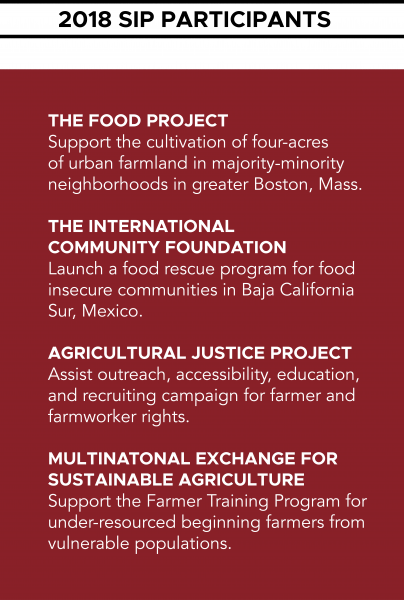
We quietly got started. In early 2016, Oregon Tilth formed a Social Equity Committee. The group looked to build on the retreat conversations, a process of organizing and reorganizing information and ideas. It’s been a messy and rigorous job. Each consideration feels critically important. An initial staff-wide survey resulted in little consensus for defining social equity or for narrowing our focus areas. As we staggered forward, there were more questions and less clarity. But our determination to continue only deepened.
It’s fair to say that Oregon Tilth is not well-equipped to present itself as a champion of social issues. That’s OK. We’re just starting to learn that the pursuit of our mission statement doesn’t require perfection. It requires an unrelenting commitment to supporting communities that are marginalized, hurting, and left behind—despite the eye-popping economic growth of organic farming and food.
The launch of our Social Investment Project (SIP) is one small step forward. This year, we awarded $30,000 in social investment grants to organizations that understand the intricacies of specific social issues facing food and agriculture. It’s not complicated. Oregon Tilth provides financial resources and capacity development to institutions that work daily to fight for and face the needs of different communities. Our job is to help them do what they do well. In return, our SIP participants will educate and inform Oregon Tilth about how we can integrate their experiences into our own services.
In 2018, we’ll focus on improving the extent to which equity is an everyday part of Tilth life. We’ll look at our culture, services, and programs. And, in partnership with the Center for Equity and Inclusion, we’ll develop a strategic plan for our social equity work going forward.
There will be questions. There will be debate, disagreement, and possibly failure. We will confront our prejudices and presumptions; we’ll need to be reminded to be good listeners and good pupils. There will be relationship-building and engagement; there will be discomfort and emotions. And throughout our pursuit, we will strive to implant equity into the blood, bones, and spirit of Oregon Tilth. We look forward to sharing our work with you, and invite all of our stakeholders to be a part of this shared journey.


